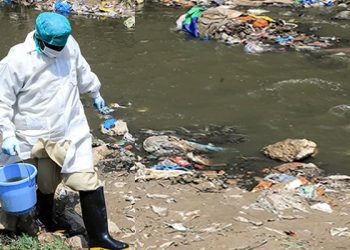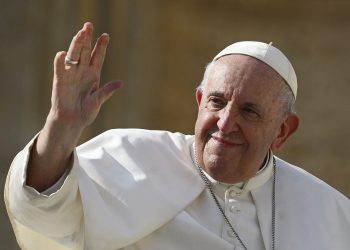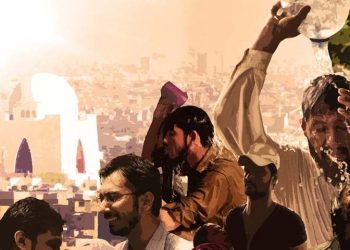It’s a small movement with enormous potential – doctors, hospitals and non-profit organizations are reaching across borders to assist Pakistanis seeking medical treatment in India – because they realize the importance of building bonds between two nations born of a divided land
Qunoot Baig had a serious cardiac problem. At age 14, she was diagnosed with transposition of great arteries (TGA), which meant that the two great arteries, aorta and pulmonary, were in abnormal positions in her heart. Chances of survival rate in such conditions were very low, with most patients’ bleak chances of survival.
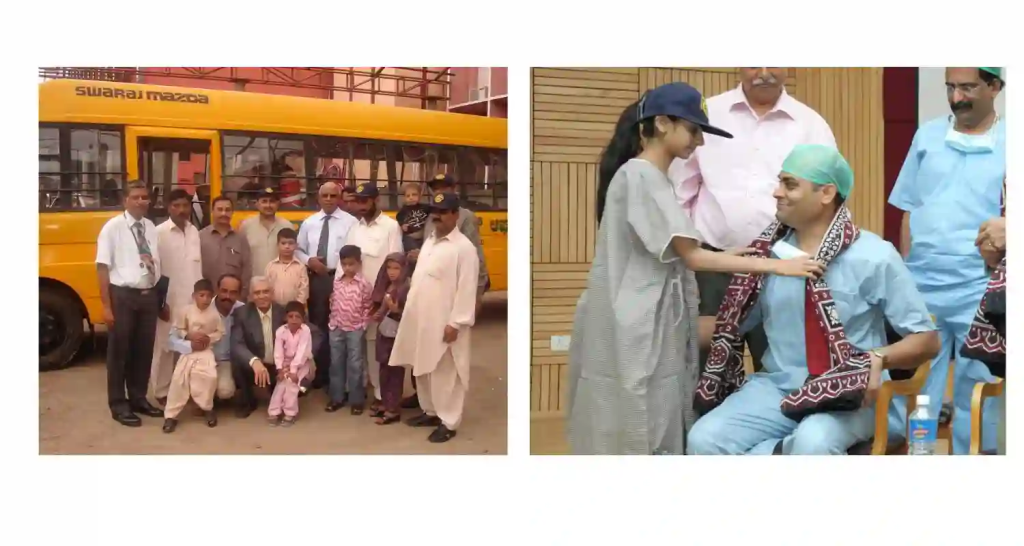
Qunoot’s father, Mirza Afzal Baig, a medical representative in Hyderabad, in Pakistan’s Sindh, followed every sort of medical advice. But these were mostly temporary solutions, the next step was corrective surgery.
As Pakistan did not have the requisite facilities, the Baigs were in a fix. Where would they get money for an expensive and complicated surgery? Who would perform the surgery?
That’s when Rotary International stepped in. When Qunoot’s case came to them they advised Baig to take her to India and arranged for their travel and her surgery in Bengaluru as part of their Goodwill Programme.
Even with a mere 30% chance of recovery, Qunoot bounced back quickly after her surgery in 2011 by cardiac surgeon, Dr Devanand, at Manipal Hospital, Bengaluru.
Thirteen years later, Qunoot, now a graduate from the University of Sind, is looking forward to pursuing a master’s degree to become a teacher and eventually spread the message of love across the Borders of India and Pakistan.

A surgeon’s hard work and parents’ prayers
In a letter written last year to Rajendra Rai, who coordinated with his Pakistani counterparts at the Rotary to arrange for her surgery, Qunoot wrote, “It was nice to meet you after 12 years … I am here because of the prayers of my parents and the hard work of the surgeon who took upon himself the role of God. Indeed, the giver of life is the essence of God, yet I would like to thank Dr Devanand. He gave me a new life; I might not be here with all of you if he had not accepted the challenge. And I am thankful to all the members of the Rotary Club. Thank you all for your love.”
One might wonder how love comes into the picture when India and Pakistan are mentioned in the same breath. Two countries born out of a divided land soaked in the blood and tears of millions of their people. From the Partition of 1947, the wars of Kashmir in 1947-48, to the conflict of 1965, the battle that led to the birth of Bangladesh in 1971 and then the Kargil War of 1999, it has been an unending tale of mayhem and destruction.
Qunoot’s story and that of many others in Pakistan, however, speaks of a silent movement across the borders – of hope, compassion and healing. Many people in Pakistan are taking advantage of world-class medical treatment in India to return to their country with grateful hearts to live healthier lives.
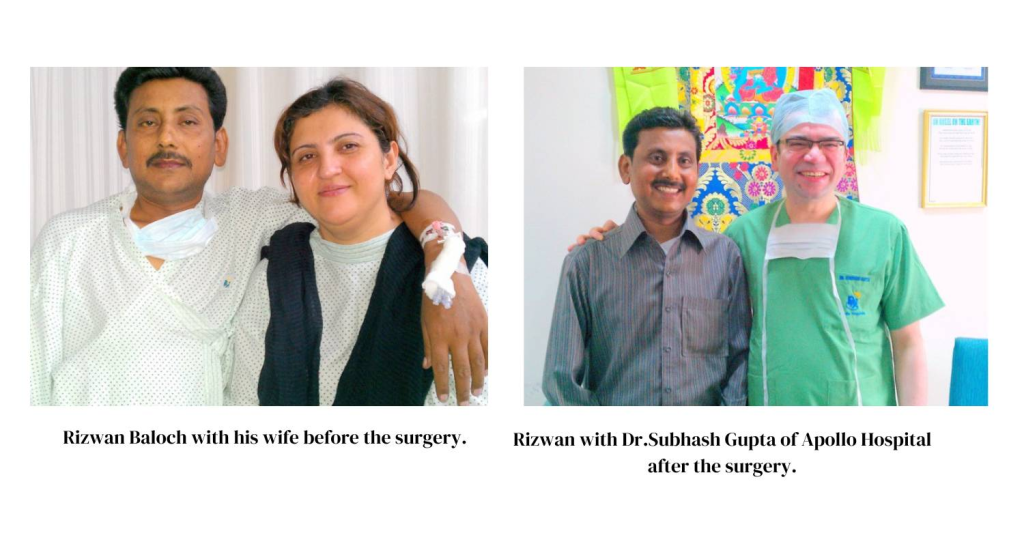
Philanthropic and non-profit organisations have funded those who have not been able to afford quality medical care. This has led to a strengthening of a strong bond between Pakistani people and the medical fraternity in India, despite vicious official propaganda from politicians on both sides.
Visa hiccups
Despite the hiccups in 2017 and 2020, when India suspended its medical visas, hundreds (no official data exists) of Pakistanis have received a fresh lease of life. From heart surgeries to liver transplants, a vast range of ailments are being treated.
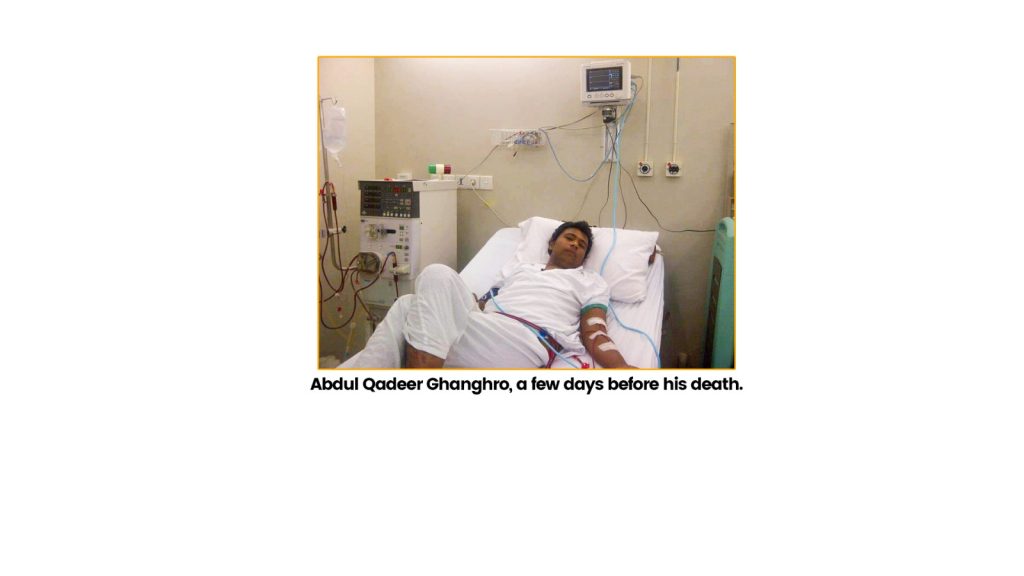
Rizwan Baloch from Karachi was struggling with liver cirrhosis in 2013. Despite his wife Rizwana Baloch available as a donor, his doctor did not hold out much hope. Today, 11 years later, the couple remain grateful to Dr Subhash Gupta of New Delhi’s Apollo Hospital for Baloch’s liver transplant, with Baloch insisting that this is a new life for him. Life for him and his family would have been very different but for the doctors across the border
Timely medical intervention is critical, however, say Rotary officials, for, among the successes, there have been failures too –the case of Abdul Qadeer Ghanghro, for instance.
The resident of Anbh village near Kandhra, about 15 kilometres from Sukkur (the third largest city in Sindh Province), was diagnosed with renal and liver failure. As his father, a clerk at the Sui Southern Gas Company, could not afford expensive treatment, the students of Sukkur’s Ghulam Mohammad Mahar Medical College (GMMC), where Ghanghro was a Third-year MBBS student, raised funds of around Pakistani 8 million rupees for him.
Not just that, two students, Arsalan Zahid and Hameed Shar, also decided to donate their kidneys to their friend and were set to take Ghanghro to India. However, the two were in Islamabad, where their visas were being processed, when they were devastated to learn of the young man’s death.
Later, to honour his memory, Ghanghro’s parents, friends, including GMMC students and faculty members and the people of Sukkur, who had generously donated money for his treatment, handed over the amount to the Sweet Home Orphanage at Sukkur.
Upgrading of medical services
Pakistan hospitals don’t as yet offer combined liver and kidney transplants, crucial for the treatment of patients like Ghanghro, says his doctor, Dr Abdul Suboor Soomro, underlining the urgent need to upgrade medical services in his country.
Heartbeats that echo across borders
Rajendra Rai, the Bengaluru-based former district governor and Managing Trustee, Rotary Needy Heart Foundation and Rotary Foundation Coordinator, says, “As we celebrate these unsung heroes — doctors, NGOs, and Rotary Clubs — we recognise that healing isn’t just about medicine. It’s about bridging hearts, fostering peace, and sowing seeds of understanding. Perhaps, in the quiet corridors of hospitals, we find the blueprint for a harmonious South Asia — where compassion triumphs over conflict. So, the next time you hear a heartbeat, remember that it echoes across borders, whispering, ‘We are one’.”
Dr Farhan Essa, Secretary General of the All-Private Hospitals and Clinics Association in Pakistan, reveals that more than 2,500 children suffering from congenital heart diseases received treatment in India facilitated by a programme ‘Aman ki Asha’ (Hope for Peace), started in the form of a campaign to bridge the divide between two countries. The move was a joint initiative by two leading media houses, The Jang Group of Pakistan and The Times of India in India. programme of Rotary International.
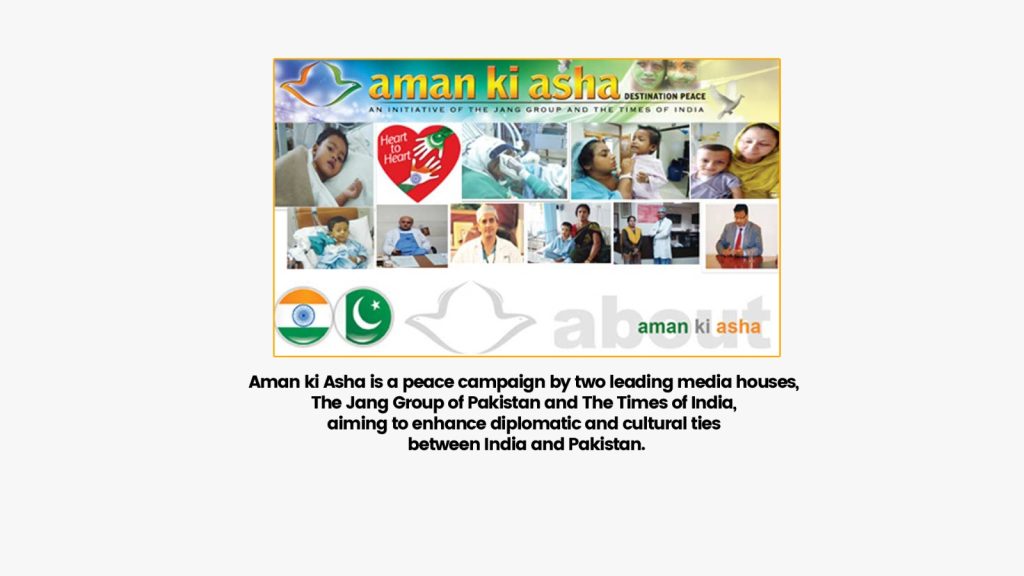
It’s not just Pakistanis, Indians too took advantage of medical tourism, says Dr Qaiser Sajjad, former Secretary-General of the Pakistan Medical Association. They sought treatment for kidney and liver problems, got hair transplants done and went in for dental, ENT, and cosmetology procedures, considering it both affordable and of good quality.
Three-month visas
Under the India-Pakistan Visa Agreement, 2012, Pakistani nationals can obtain a medical visa for up to three months to seek medical treatment in established hospital centres in India after the patient has received a prior appointment for medical treatment. One attendant can accompany the patient.
Among the reasons why Pakistanis choose India for treatment, Dr Shaleen Aggarwal, Senior Director, Liver Transplants, at Max Super Speciality Hospital in New Delhi, lists familiarity and similarity with language and culture, besides lower costs compared to other countries.
Streamline the system
However, a lot is needed to streamline the system for people across both sides of the Radcliff line to benefit from the facilities available on either side. Procedural delays, and bureaucratic hindrances marked by suspicion and hatred continue to deny available medical expertise to the needy.
In 2018, 15-year-old Hadiya Aarbi from Sindh had to wait for three months for an Indian visa for life-saving treatment. Hadiya’s father, Suhail Aarbi, who manages a small fishing net business, said nothing moved till Hadiya tagged the late Sushma Swaraj, then external affairs minister, in a tweet.
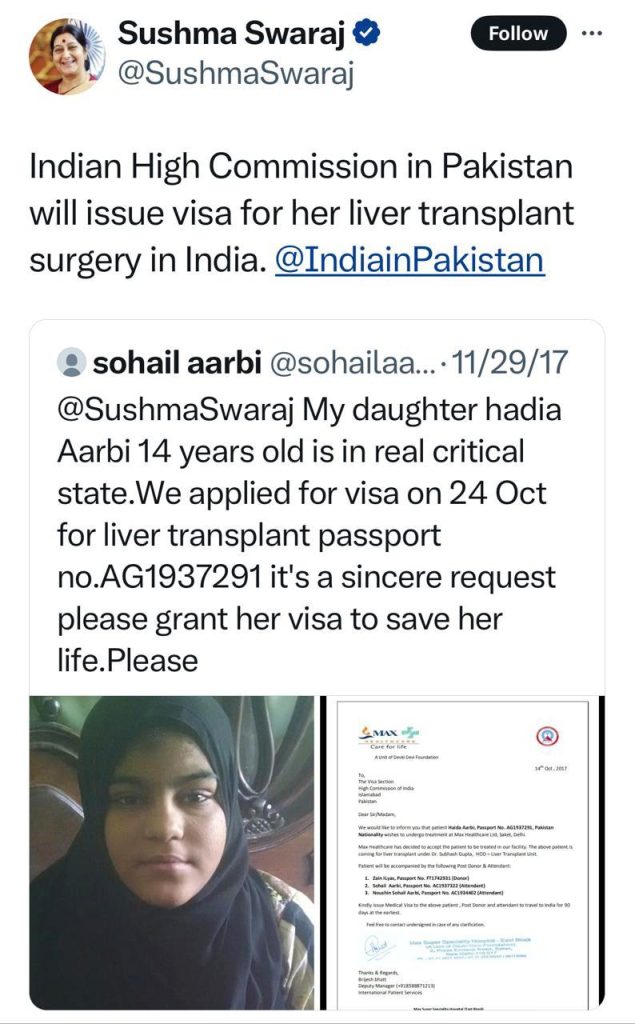
She got her visa quickly after and was among 700 children from Pakistan to benefit from the Rotary Heartline initiative, which helps children from economically weaker sections suffering from congenital cardiac disorders, says Dr Rajesh Mehta, the project coordinator.
Another organisation working to improve the health and relations between the two countries is the Pakistan-India People’s Forum for Peace and Democracy (PIPFPD). Set up in 1994 as a platform for dialogue and cooperation, PIPFPD has advocated easing visa restrictions for medical patients and providing them with logistical and financial support. It has also been organising exchange visits of doctors, nurses, and health activists from both sides to share their experiences and best practices.
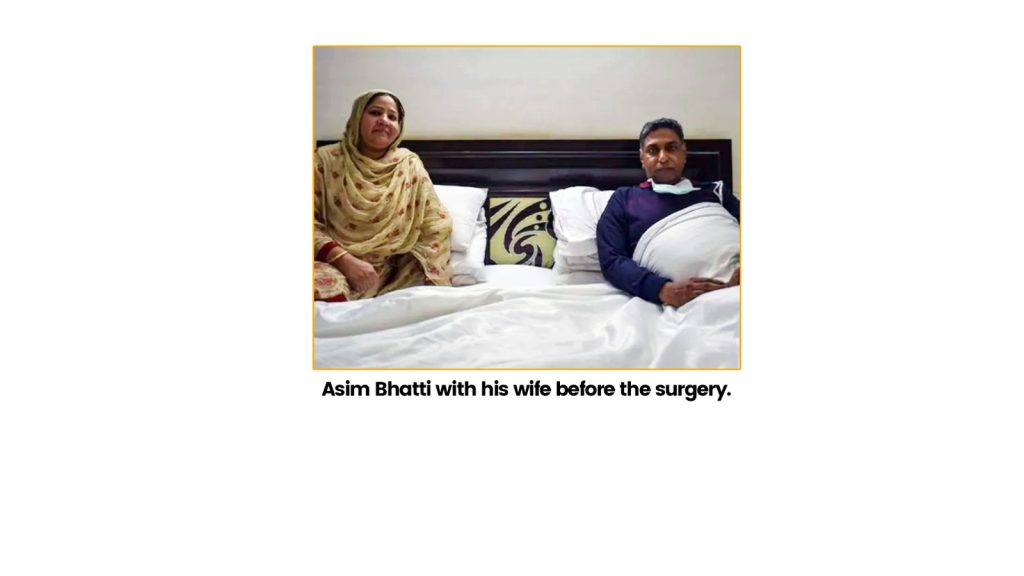
Asim Bhatti, a 42-year-old businessman from Lahore, who underwent a liver transplant in India in 2019, is grateful to PIPFPD for helping him and his family during their stay. He said he chose India over other countries as he felt comfortable with the language and culture, besides assurance of world-class treatment with a high success rate.
Adding that he was touched by the hospitality and kindness of the Indians, who treated him like a brother, Bhatti said, “I have made many friends here, and I feel we are the same people with the same problems and aspirations. I wish that our governments and media will also focus on our relationship’s positive aspects, not just the negative ones,” he said.
It takes the gift of life to make people realise the power of compassion and its miracle cure for every sort of festering wound, be it the India-Pakistan Partition or the subsequent wars and stand-offs, and come together for nothing else but for the health, welfare and happiness of the people of the two nations.
Top hospitals, foundations and organisations assisting Pakistani patients
Narayana Health City, Bengaluru: This multi-speciality hospital offers treatment for complex cardiac issues and various cancers. It is known for providing affordable and high-quality healthcare.
Fortis Memorial Research Institute, Gurgaon: Fortis is a renowned healthcare provider in India and its Gurgaon facility is a popular destination for Pakistani patients seeking treatment for various ailments, including cancer, cardiac problems, and organ transplants.
Indraprastha Apollo Hospitals, New Delhi: Apollo Hospitals is one of the largest healthcare groups in India, and its Indraprastha facility in Delhi has treated over 3,000 Pakistani patients in recent years, specialising in cardiac care, orthopaedics, and neurosciences.
Tata Memorial Hospital, Mumbai: This premier cancer hospital in Mumbai offers advanced cancer treatment.
All India Institute of Medical Sciences (AIIMS), New Delhi: AIIMS, a leading medical institute in India excels in treatment for various ailments, particularly in areas of neurology, oncology, and organ transplants.
Medanta – The Medicity, Gurgaon: Medanta is a multi-super speciality hospital known for its advanced medical facilities. It has treated many Pakistani patients for complex conditions like brain and heart surgeries, cancer, and organ transplants.
Shalby Hospitals, Ahmedabad: This prominent multi-speciality hospital in Gujarat has gained recognition for its expertise in joint replacements, orthopaedic surgeries, and advanced treatments.
Sankara Nethralaya, Chennai: This renowned eye hospital in Chennai provides eye care and sight-restoring treatments to patients suffering from various eye disorders and vision impairments.
Manipal Hospitals, Bengaluru: Manipal Hospitals, known for its expertise in oncology, neurosciences, and transplants, has been a preferred destination for patients seeking advanced medical care.
“Gift of Life” programme, Rotary International: The Rotary Club has facilitated and sponsored the treatment of numerous Pakistani children with heart defects in Indian hospitals such as Narayana Health City and Fortis.
[This cross-border story is a collaborative effort by Najia Mir, a senior broadcast journalist from Pakistan, and Naveen S Garewal, a senior editor from India, for the East-West Centre’s cross-border reporting project]












































